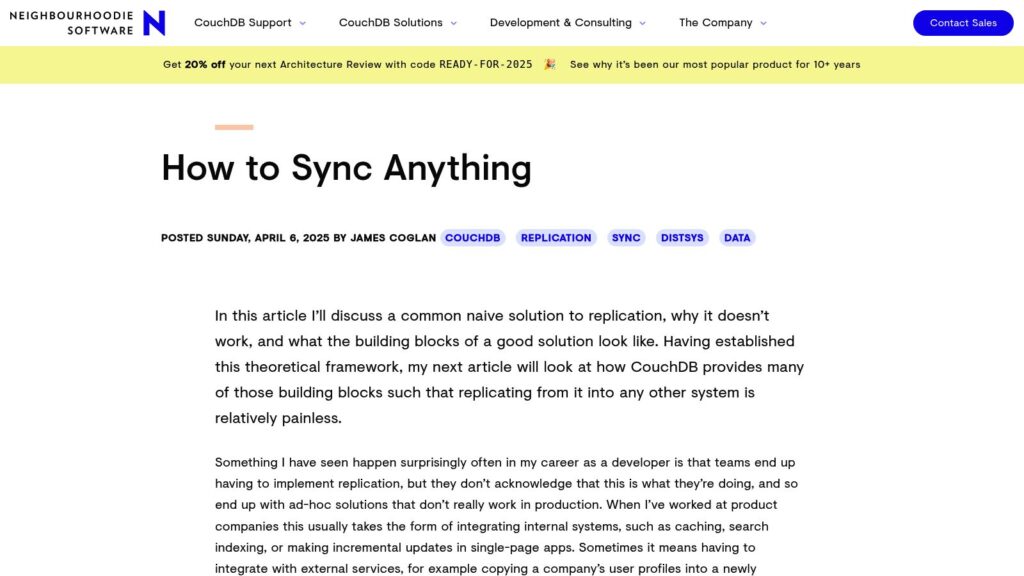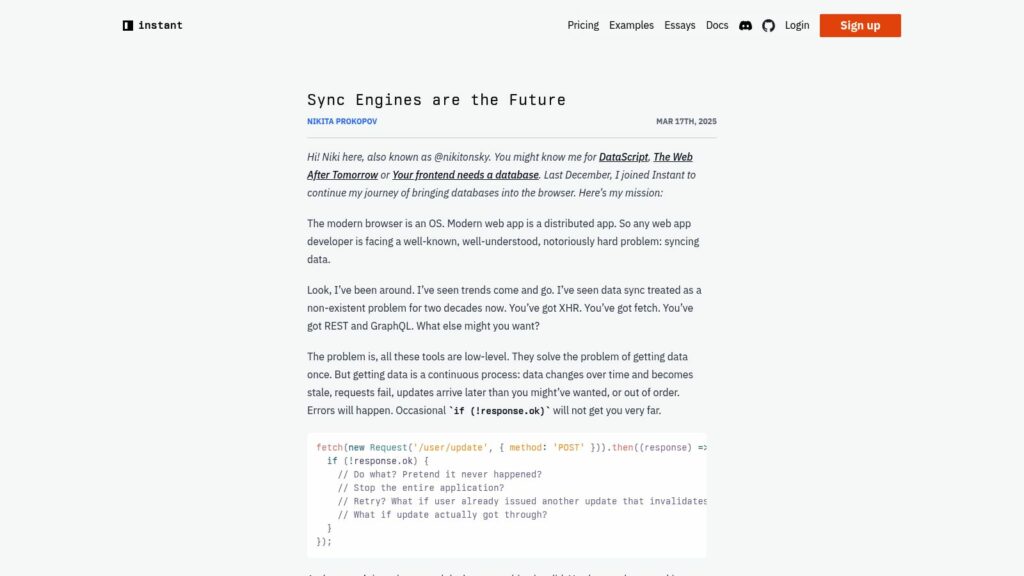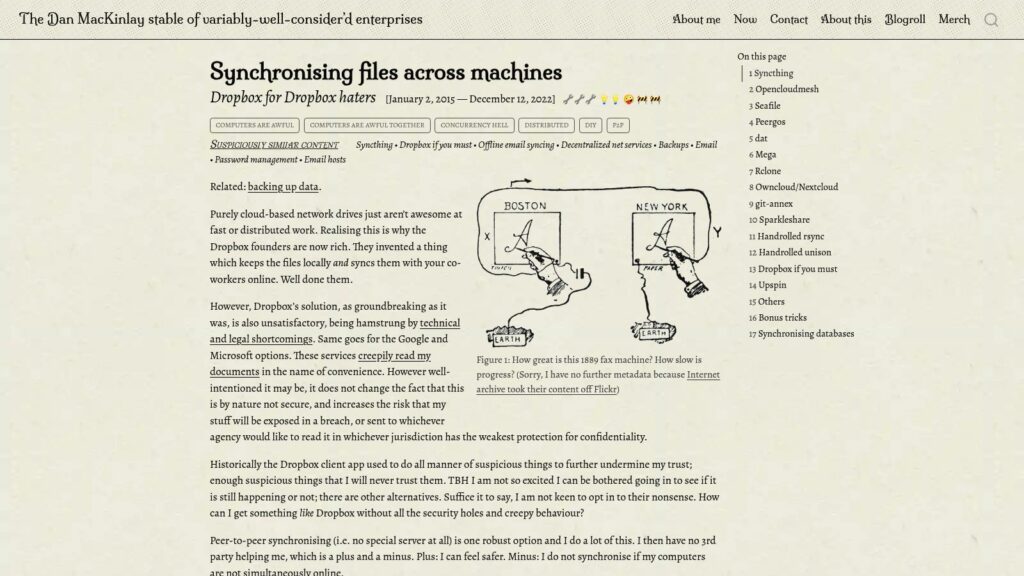How to Sync Anything
Extreme TLDR: Discusses the complexities of data replication, outlining common pitfalls like ad-hoc solutions, the pros and cons of ETL versus incremental syncing, and the importance of a systematic approach (diff and patch) for consistent state management in target systems. Recommends CouchDB's robust replication methods for seamless integration.
https://neighbourhood.ie/blog/2025/04/06/how-to-sync-anything



